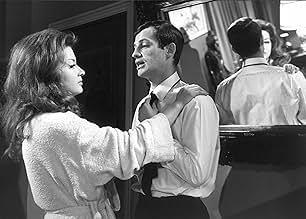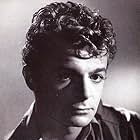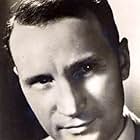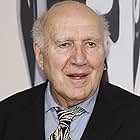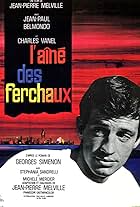A burglar betraying other criminals prepares for a big heist with a trusted friend who might be as untrustworthy as he.A burglar betraying other criminals prepares for a big heist with a trusted friend who might be as untrustworthy as he.A burglar betraying other criminals prepares for a big heist with a trusted friend who might be as untrustworthy as he.
- Awards
- 1 nomination
René Lefèvre
- Gilbert Varnove
- (as René Lefevre)
Philippe March
- Jean
- (as Aimé De March)
Jacques Léonard
- Un inspecteur
- (as Jack Leonard)
- Director
- Writers
- All cast & crew
- Production, box office & more at IMDbPro
Storyline
Did you know
- TriviaMartin Scorsese's favorite gangster movie.
- GoofsWhen the inspectors get Silien in their car, the background starts sliding prematurely as the driver hops in, albeit the engine was not running.
- ConnectionsFeatured in Les échos du cinéma: Episode #1.50 (1962)
Featured review
DOULOS: THE FINGER MAN (Jean-Pierre Melville - France/Italy 1962).
Jean-Paul Belmondo is the duplicitous Silien, underworld criminal and police informer and Serge Reggianni as the dogged villain Faugel. Belmondo, who normally is a much more outgoing actor, has to play a very distant role as a gangster, much different than the wanna-be gangster he played in "AU BOUT DE Soufflé" (1959) by Godard (I know it's not soufflé but the IMDb doesn't accept my correct spelling). That's probably why Alain Delon became Melville's first choice in his later films, because Delon naturally had a much more restrained performance.
Based on a novel from the famous série noire crime series, he made a film what he called 'my first real policier'. Perhaps there's a little too much emphasis on plot that has more than a few loopholes, as most film-noirs did, Melville's favorite inspiration for many of his films. I do think film-lovers are trying a little too hard to make this film into some kind of new forgotten masterpiece. By Melville standards, it still has quite a competent plot and does make sense but there's not really a central character like Bob in BOB LE FLAMBEUR or Jeff Costello in LE SAMOURAI to root for.
Melville very much belonged to the Parisian post-war intelligentsia who were infatuated with American literature, music and above all, film. He was an ardent film lover and reputedly saw at least five films a day for a long period of his life. In LE DOULOS his obsession with American cinema becomes apparent. They drive American cars (and the occasional cool Citroën), behave like gangsters in American crime films of the '40s and Melville loves to use newspaper headlines to heighten some of plot elements, just like Godard famously did in AU BOUT DE Soufflé. French Melville aficionado Ginette Vincendeau put it best: 'Melville was a director very much influenced by American cinema but by no means someone who made copies of American films; in fact, he was a very French filmmaker'.
I wasn't instantly captivated by this film as with LE SAMOURAI (1967), but the whole atmosphere, the ambiance, stunning camera movements and an almost perfect music score still make this a very agreeable Melville. This is cinema with style and class and a quintessential addition to the French gangster genre.
Camera Obscura --- 8/10
Jean-Paul Belmondo is the duplicitous Silien, underworld criminal and police informer and Serge Reggianni as the dogged villain Faugel. Belmondo, who normally is a much more outgoing actor, has to play a very distant role as a gangster, much different than the wanna-be gangster he played in "AU BOUT DE Soufflé" (1959) by Godard (I know it's not soufflé but the IMDb doesn't accept my correct spelling). That's probably why Alain Delon became Melville's first choice in his later films, because Delon naturally had a much more restrained performance.
Based on a novel from the famous série noire crime series, he made a film what he called 'my first real policier'. Perhaps there's a little too much emphasis on plot that has more than a few loopholes, as most film-noirs did, Melville's favorite inspiration for many of his films. I do think film-lovers are trying a little too hard to make this film into some kind of new forgotten masterpiece. By Melville standards, it still has quite a competent plot and does make sense but there's not really a central character like Bob in BOB LE FLAMBEUR or Jeff Costello in LE SAMOURAI to root for.
Melville very much belonged to the Parisian post-war intelligentsia who were infatuated with American literature, music and above all, film. He was an ardent film lover and reputedly saw at least five films a day for a long period of his life. In LE DOULOS his obsession with American cinema becomes apparent. They drive American cars (and the occasional cool Citroën), behave like gangsters in American crime films of the '40s and Melville loves to use newspaper headlines to heighten some of plot elements, just like Godard famously did in AU BOUT DE Soufflé. French Melville aficionado Ginette Vincendeau put it best: 'Melville was a director very much influenced by American cinema but by no means someone who made copies of American films; in fact, he was a very French filmmaker'.
I wasn't instantly captivated by this film as with LE SAMOURAI (1967), but the whole atmosphere, the ambiance, stunning camera movements and an almost perfect music score still make this a very agreeable Melville. This is cinema with style and class and a quintessential addition to the French gangster genre.
Camera Obscura --- 8/10
- Camera-Obscura
- Sep 20, 2006
- Permalink
- How long is Le Doulos?Powered by Alexa
Details
- Release date
- Countries of origin
- Language
- Also known as
- Doulos: The Finger Man
- Filming locations
- Rue Watt, Paris 13, Paris, France(opening scene: Faugel walking under railway)
- Production companies
- See more company credits at IMDbPro
Box office
- Gross US & Canada
- $82,772
- Opening weekend US & Canada
- $9,362
- Jul 1, 2007
- Gross worldwide
- $91,410
- Runtime1 hour 48 minutes
- Color
- Sound mix
- Aspect ratio
- 1.66 : 1
Contribute to this page
Suggest an edit or add missing content





